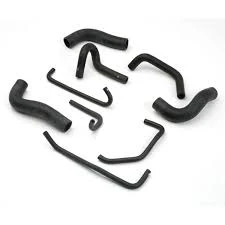fuel line pipe
11월 . 14, 2024 11:44 Back to list
fuel line pipe
Understanding Fuel Line Pipes Importance, Types, and Maintenance
Fuel line pipes are crucial components in various vehicles and machinery, as they transport fuel from the tank to the engine. These pipes are designed to withstand high pressure, temperature variations, and exposure to various chemicals. An understanding of fuel line pipes not only ensures optimal performance of the engine but also enhances safety and efficiency in operation.
Importance of Fuel Line Pipes
Fuel line pipes serve a vital role in the fuel delivery system. They ensure a steady flow of fuel to the engine, which is essential for it to run smoothly. Any disruption or failure in this system can result in poor engine performance, increased emissions, or, in the worst case, complete engine failure. Therefore, the integrity and functionality of fuel line pipes are paramount.
Types of Fuel Line Pipes
There are several types of fuel lines available, each designed for specific applications and environments. The most common types include
1. Rubber Fuel Lines These are flexible and easy to install, making them suitable for many vehicle types. They are resistant to most fuels but can degrade over time, especially when exposed to sunlight or high temperatures.
2. Metal Fuel Lines Typically made from stainless steel or aluminum, metal fuel lines are more durable and resistant to damage from heat and chemicals. They are often used in high-performance vehicles or in applications where longevity is a priority.
3. Plastic Fuel Lines These lightweight lines are becoming more popular due to their resistance to corrosion and chemicals. However, they may not be suitable for high-temperature applications.
fuel line pipe

4. Ethanol-Compatible Lines With the increasing use of biofuels, specially designed fuel lines that can handle ethanol blends are essential. These lines are made from materials that resist the corrosive effects of ethanol.
Maintenance of Fuel Line Pipes
Regular maintenance of fuel line pipes can prevent costly repairs and ensure the safety of the vehicle. Here are some maintenance tips
- Inspection Periodically check the fuel lines for signs of wear, such as cracks, abrasions, or leaks. Look for any rust or corrosion on metal lines.
- Cleaning Ensure that the fuel lines are free from debris and obstructions. A clogged line can impair fuel flow and affect engine performance.
- Replacement If any damage is detected, replace the affected sections promptly. It’s important to use the correct type of fuel line to maintain compatibility with the fuel system.
- Professional Service For comprehensive checks and repairs, consider consulting a professional mechanic. They can provide insights into potential issues that may not be immediately visible.
In conclusion, fuel line pipes play a significant role in the optimal functioning of a vehicle’s engine. Understanding their types, importance, and maintenance routines can facilitate better performance, ensure safety, and extend the lifespan of the fuel delivery system. Regular inspection and maintenance can save you time and money while providing peace of mind.
